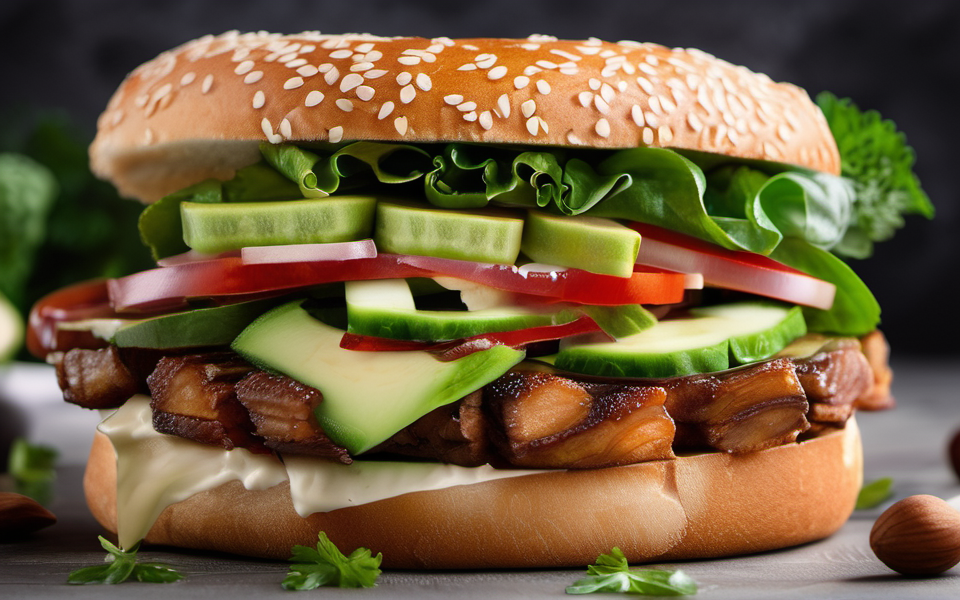Dietary Trends and Their Association with Chronic Inflammation
Chronic inflammation is a silent killer, contributing to a host of chronic diseases like heart disease, type 2 diabetes, arthritis, and even certain types of cancer. While genetics plays a role, diet is a powerful tool that can significantly influence inflammation levels in the body. Let’s dive into some popular dietary trends and their potential impact on chronic inflammation.
The Anti-Inflammatory Power of Food
The concept of an “anti-inflammatory diet” is based on the idea that certain foods can help reduce inflammation in the body, while others may contribute to or exacerbate it. The good news is, research is shedding light on the connection between specific food groups and inflammatory responses:
Foods That Fight Inflammation:
- Fruits and Vegetables: Brimming with antioxidants, vitamins, and fiber, these superstars are potent anti-inflammatories. Think colorful peppers, berries, leafy greens, cruciferous veggies like broccoli, and garlic.
- Omega-3 Fatty Acids: Found in fatty fish like salmon, tuna, and mackerel, these healthy fats help decrease inflammation and improve cardiovascular health.
- Whole Grains: High in fiber and nutrients, whole grains help regulate blood sugar, which is important for reducing inflammation. Opt for brown rice, quinoa, oats, and whole-grain breads.
- Herbs and Spices: Turmeric, ginger, cinnamon, rosemary, and oregano are packed with anti-inflammatory compounds, offering a flavorful way to fight inflammation.
Foods That Promote Inflammation:
- Processed Foods: Loaded with unhealthy fats, refined carbohydrates, and added sugars, these culprits promote inflammation and contribute to chronic diseases. Think packaged snacks, fast food, and processed meats.
- Sugar: Too much sugar fuels inflammation and can negatively impact blood sugar control, putting you at risk for metabolic issues and inflammation.
- Trans Fats: Found in margarine and some fried foods, trans fats are especially harmful, promoting inflammation and increasing the risk of heart disease.
Exploring Dietary Trends and Their Potential Impact
Let’s take a closer look at popular dietary trends and their potential association with chronic inflammation:
1. The Mediterranean Diet:
This way of eating, centered around fruits, vegetables, whole grains, olive oil, nuts, seeds, fish, and moderate consumption of poultry, dairy, and red wine, is well-known for its potential anti-inflammatory properties.
- Anti-inflammatory benefits: Research suggests the Mediterranean diet may lower risk factors for heart disease and inflammation.
- Not just a diet: It’s a lifestyle emphasizing fresh, unprocessed foods and regular physical activity, both linked to reduced inflammation.
2. The DASH Diet:
Originally designed to manage high blood pressure, the DASH diet focuses on reducing sodium and increasing fruits, vegetables, and low-fat dairy products.
- Benefits: Studies suggest it can help decrease inflammation, particularly related to blood vessels and heart health.
- Lower sodium, lower inflammation: By limiting sodium intake, this diet can help regulate blood pressure, a key factor in reducing inflammation.
3. Paleo Diet:
This diet focuses on whole foods and eliminates grains, dairy, legumes, and refined sugars. While proponents claim it reduces inflammation, there’s mixed evidence.
- Possible benefits: Emphasizes nutrient-dense foods like fruits, vegetables, meats, nuts, and seeds. However, it restricts certain healthy foods like beans and whole grains.
- Missing the mark? The long-term effects on inflammation are unclear, and some argue it lacks enough fiber and certain micronutrients crucial for long-term health.
4. Veganism:
Plant-based diets like veganism can be incredibly healthy, but their impact on inflammation depends on the specific foods included.
- Potential benefits: Emphasizes fruits, vegetables, legumes, nuts, and seeds, often providing a high amount of antioxidants and fiber, potentially beneficial for inflammation.
- Nutrient needs: Careful planning is crucial to ensure you’re meeting essential nutrient needs like B12 and iron.
5. Ketogenic Diet:
This high-fat, low-carb diet aims to put the body into ketosis, using fat as a primary energy source. The ketogenic diet is highly restrictive and doesn’t directly focus on anti-inflammation.
- Limited data: There is currently limited research on its impact on chronic inflammation.
- Potential concerns: Some experts worry its long-term health effects might outweigh its potential benefits, especially in terms of nutrient deficiencies and metabolic impact.
Important Considerations:
While certain diets may hold promise for lowering inflammation, it’s important to note:
- Individuality: No one-size-fits-all approach exists. Everyone’s body is different, and what works for one person might not work for another.
- Consulting a Healthcare Professional: It’s crucial to discuss your diet with a qualified health professional to address individual needs and ensure adequate nutrient intake.
- Beyond Diet: Diet isn’t the only factor impacting inflammation. Lifestyle choices like exercise, stress management, and sleep quality also play a significant role.
The Bottom Line:
Instead of blindly following a trendy diet, consider incorporating a balanced approach that prioritizes whole, unprocessed foods rich in fruits, vegetables, and healthy fats, while minimizing processed foods, added sugars, and unhealthy fats. Focus on creating a sustainable way of eating that supports both your health and well-being.
Remember, good nutrition is an investment in your long-term health. By making informed choices about your diet and incorporating other healthy lifestyle habits, you can take a proactive stance against chronic inflammation and enjoy a life filled with vitality!









